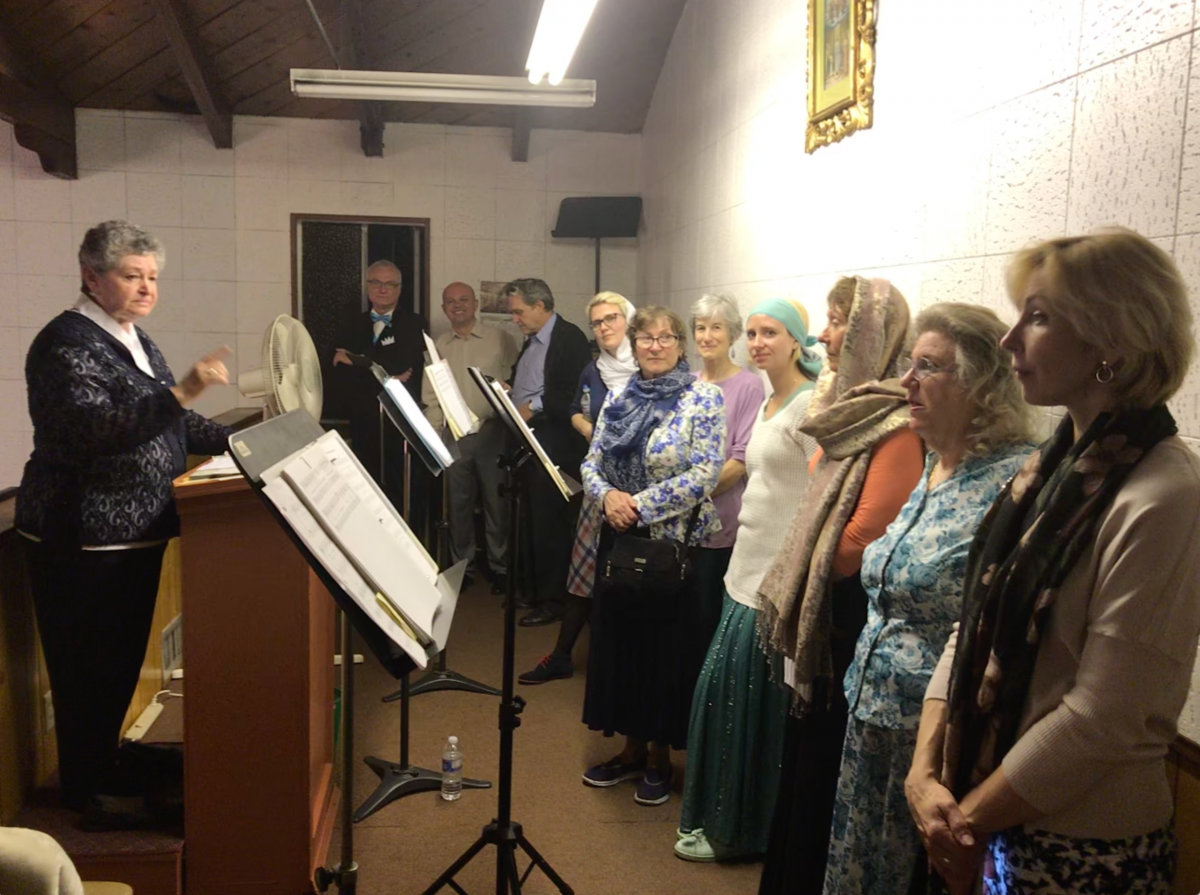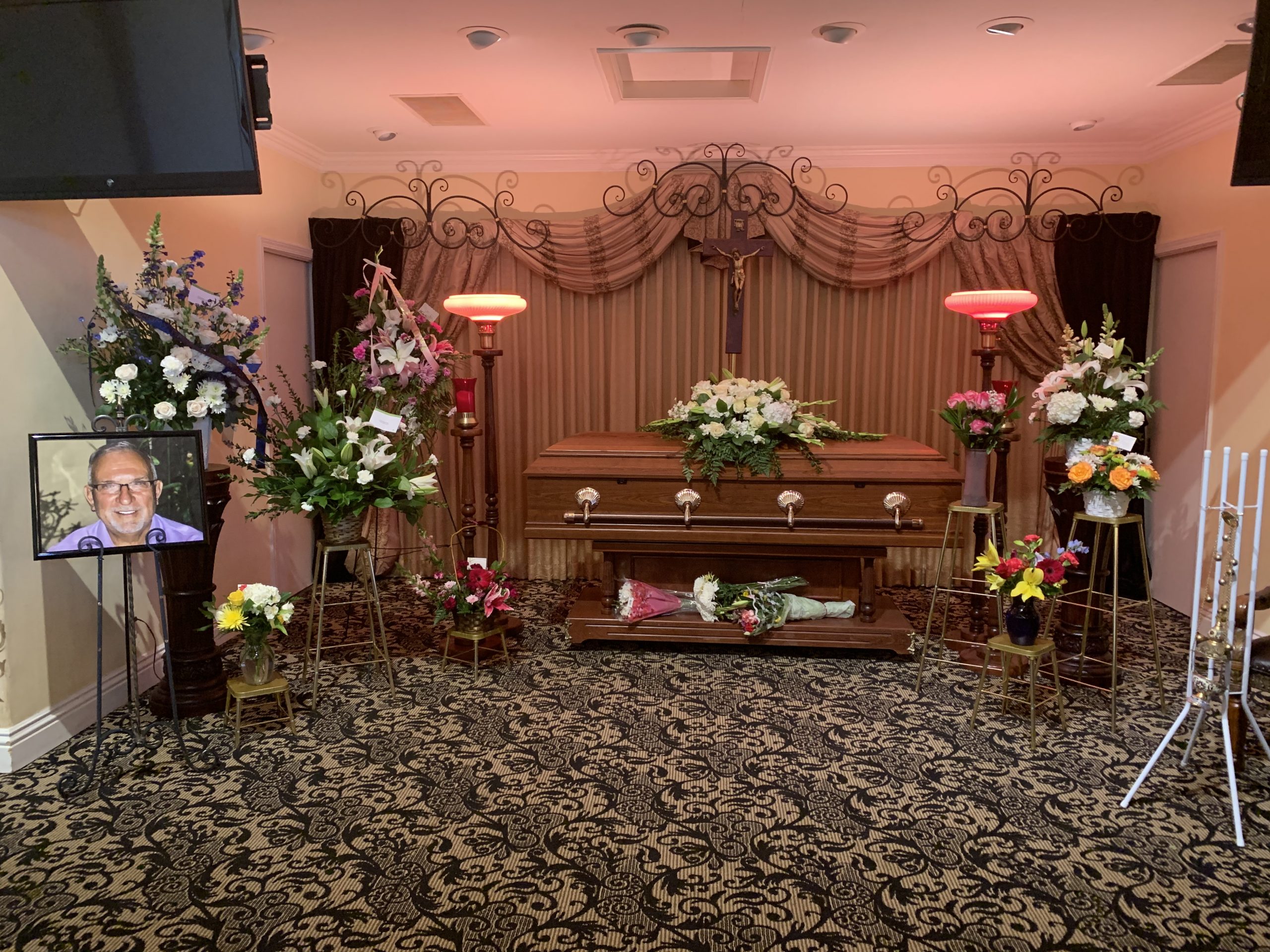The following article was written by our own Bishop Benjamin in 1985, when He was serving as a Choir Director and Chair of the Department of Liturgical Music of the Orthodox Church in America.
Each of us as a member of the Church has been and is continually invited to sit at the banquet table of Christ in His Kingdom. Indeed, we sit at this Holy Table at every Divine Liturgy. “Blessed are those who are invited to the marriage supper of the Lamb” (Rev. 19:9). This is a curious wedding feast, for we are not only the honored guests, but also the cherished Bride (Eph. 5:21-32). [Orthodox Church Choir] In the Book of Revelation St. John the Theologian describes the power and beauty of this spiritual banquet. God is seated on His throne, surrounded by the heavenly hosts, and the voice of a great multitude is heard: “Alleluia! For the Lord our God, the Almighty, reigns. Let us rejoice and exult and give Him the glory, for the marriage supper of the Lamb has come, and His Bride has made herself ready.” (Rev. 19:6-7).
The Church has always understood service or ministry at this divine feast to be an awesome privilege and responsibility. She has guarded the sanctity of the Lord’s Table as the very focal point of Christian life. But bishops, priests, and deacons are not the only ones called to serve at this feast. The whole people of God must be present—each one with his or her unique talent. This is especially true of singers. At one time, in fact, it was the practice of the Church to set church singers apart by a special tonsure, much like the tonsure readers receive to this day. Sadly, this practice has been abandoned and with it, perhaps, a measure of singers’ accountability.
Our service or ministry of singing is a vital part of the Liturgy. It must convey the power and beauty of God’s Kingdom. It must be transparent to God; that is, it must enable God’s Spirit to work salvation in the hearts and minds of men. It must be enlivened by the Holy Spirit and not call attention to itself. And, as our Beloved is beautiful, our singing must reflect His comeliness. Let us remember that many have been led to Christ through the beauty of the Liturgy—whether through the magnificence of a hierarchal liturgy or the quiet intimacy of a service in a small missionary community. Both have their place in the Church’s life. And both can be powerful tools of God to change people’s lives.
The story of St. Vladimir’s conversion comes to mind. The Kievan prince sent envoys to seek out a faith for his people. Various reports were given regarding the faith and worship of the Moslems and the Jews. But is was the report of the ambassadors to Constantinople that convinced the prince: “We knew not whether we were in heaven or on earth!” They had seen the Divine Liturgy in the Byzantine capital and were dumfounded. God can speak through the aesthetics of our worship!
But all too often it is the aesthetics of the liturgy that are neglected, especially in our North American experience. We are products of an age where convenience is king. In some places, liturgical services are chopped up with an eye towards getting out of church faster. In other places, every “jot and tittle” of the rubrics are followed, every psalm sung, every prayer read, but in a fashion that resembles an auctioneer. Is God well served in this way? Too often facility, and not quality, has become our primary concern in this modern age.
And this, finally, is where the ascetic dimension of church singing must enter. When one thinks of asceticism, what comes to mind are monks and nuns in the desert or in monasteries, living lives of discipline and detachment. They are living icons of God, who have put everything aside save “the good portion, which shall not be taken away…” (Luke 10:42). There must be a similar discipline and dedication among singers and choir directors as well. Those things that interfere with our ministry must be laid aside!
In order to be properly prepared, even professional musicians rehearse and are timely about attendance. How sad and even blasphemous it is when those called to God’s service through singing find other things to be more important! We must care about what we do! Why? To offer something of real value to the Bridegroom! To give Him our very best! Real love demands nothing less of us. And if our own service to God is one of real love, it can have the power to change the attitudes and hearts of those around us. Thus the simplest church singing, if it is prepared and executed with love, can be God-bearing….
An ascetic effort is an essential part of aesthetic church singing. And our desire to sing beautifully should arise out of our desire to adorn the bridal chamber of Christ. Our ministry of singing, like every other ministry in the Church, requires care, love, vision, and dedication.



